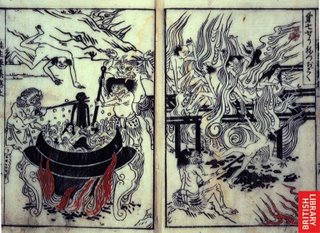
By DAVID S. CLOUD and HELENE COOPER
WASHINGTON, July 21 — The Bush administration is rushing a delivery of precision-guided bombs to Israel, which requested the expedited shipment last week after beginning its air campaign against Hezbollah targets in Lebanon, American officials said Friday.
The decision to quickly ship the weapons to Israel was made with relatively little debate within the Bush administration, the officials said. Its disclosure threatens to anger Arab governments and others because of the appearance that the United States is actively aiding the Israeli bombing campaign in a way that could be compared to Iran’s efforts to arm and resupply Hezbollah.
The munitions that the United States is sending to Israel are part of a multimillion-dollar arms sale package approved last year that Israel is able to draw on as needed, the officials said. But Israel’s request for expedited delivery of the satellite and laser-guided bombs was described as unusual by some military officers, and as an indication that Israel still had a long list of targets in Lebanon to strike.
From: http://billmon.org/
Psychopath (sy'-co-path) n. 1. A person with an antisocial personality disorder, manifested in aggressive, perverted, criminal, or amoral behavior without empathy or remorse. 2. The current President of the United States.Cenk Uygur gets it:
In the old empires, there would be a lot of marriages between the royal families. And from time to time, these inter-family marriages would produce a mentally challenged son who would inherit the throne. This would set the empire back for hundreds of years. I'm not saying anything, I'm just saying. Russia is big and so is China.
From: Buddhism Dictionary on Karma [http://tinyurl.com/jrnuz]
Karma : Volition, volitional or intentional activity.
Karma is always followed by its fruit, Vipaka. Karma and Vipaka are oftentimes referred to as the law of causality, a cardinal concern in the Teaching of the Buddha.
Common karma: the difference between personal and common karma can be seen in the following example: Suppose a country goes to war to gain certain economic advantages and in the process, numerous soldiers and civilians are killed or maimed. If a particular citizen volunteers for military services and actually participates in the carnage, he commits a personal karma of killing. Other citizens, however, even if opposed to the war, may benefit directly or indirectly (e.g., through economic gain). They are thus said to share in the common karma of killing of their country.
Fixed karma: in principle, all karma is subject to change. Fixed karma, however, is karma which can only be changed in extraordinary circumstances, because it derives from an evil act committed simultaneously with mind, speech and body. An example of fixed karma would be a premeditated crime [like unilaterally starting a war, may be?] versus a crime of passion.
From: Tricycle's Daily Dharma: July 23, 2006 [http://www.tricycle.com/]
The theory of karma should not be confused with so-called "moral justice" or "reward and punishment." The idea of moral justice, or reward and punishment, arises out of the conception of a supreme being, a God, who sits in judgment, who is a law-giver and who decides what is right and wrong. The term "justice" is ambiguous and dangerous, and in its name more harm than good is done to humanity. The theory of karma is the theory of cause and effect, of action and reaction; it is a natural law, which has nothing to do with the idea of justice or reward and punishment. Every volitional action produces its effects or results. If a good action produces good effects and a bad action bad effects, it is not justice, or reward, or punishment meted out by anybody or any power sitting in judgment on your action, but this is in virtue of its own nature, its own law. This is not difficult to understand. But what is difficult is that, according to the karma theory, the effects of a volitional action may continue to manifest themselves even in a life after death.
--Walpola Rahula in What the Buddha Taught
from Everyday Mind, edited by Jean Smith, a Tricycle book






No comments:
Post a Comment